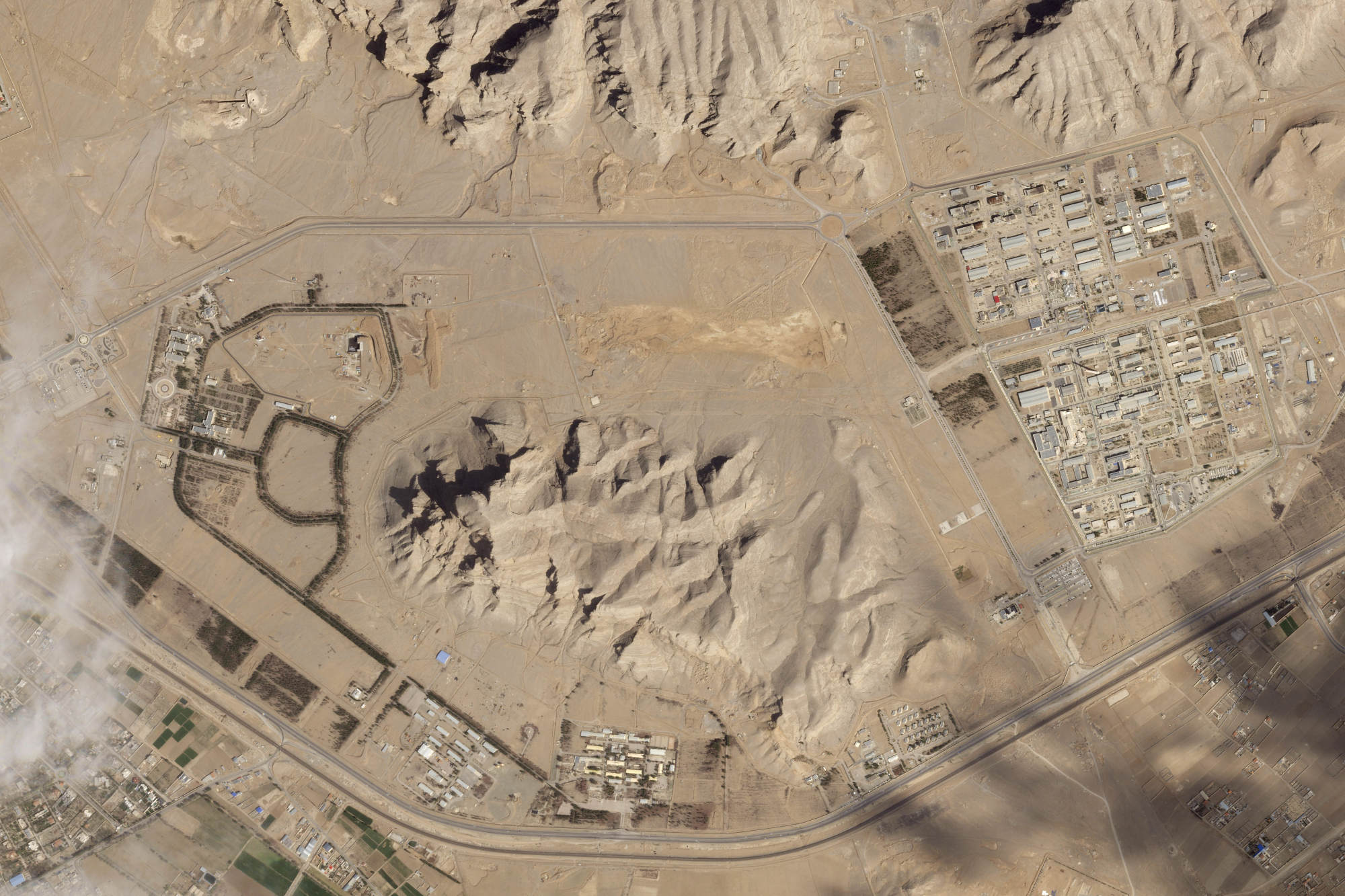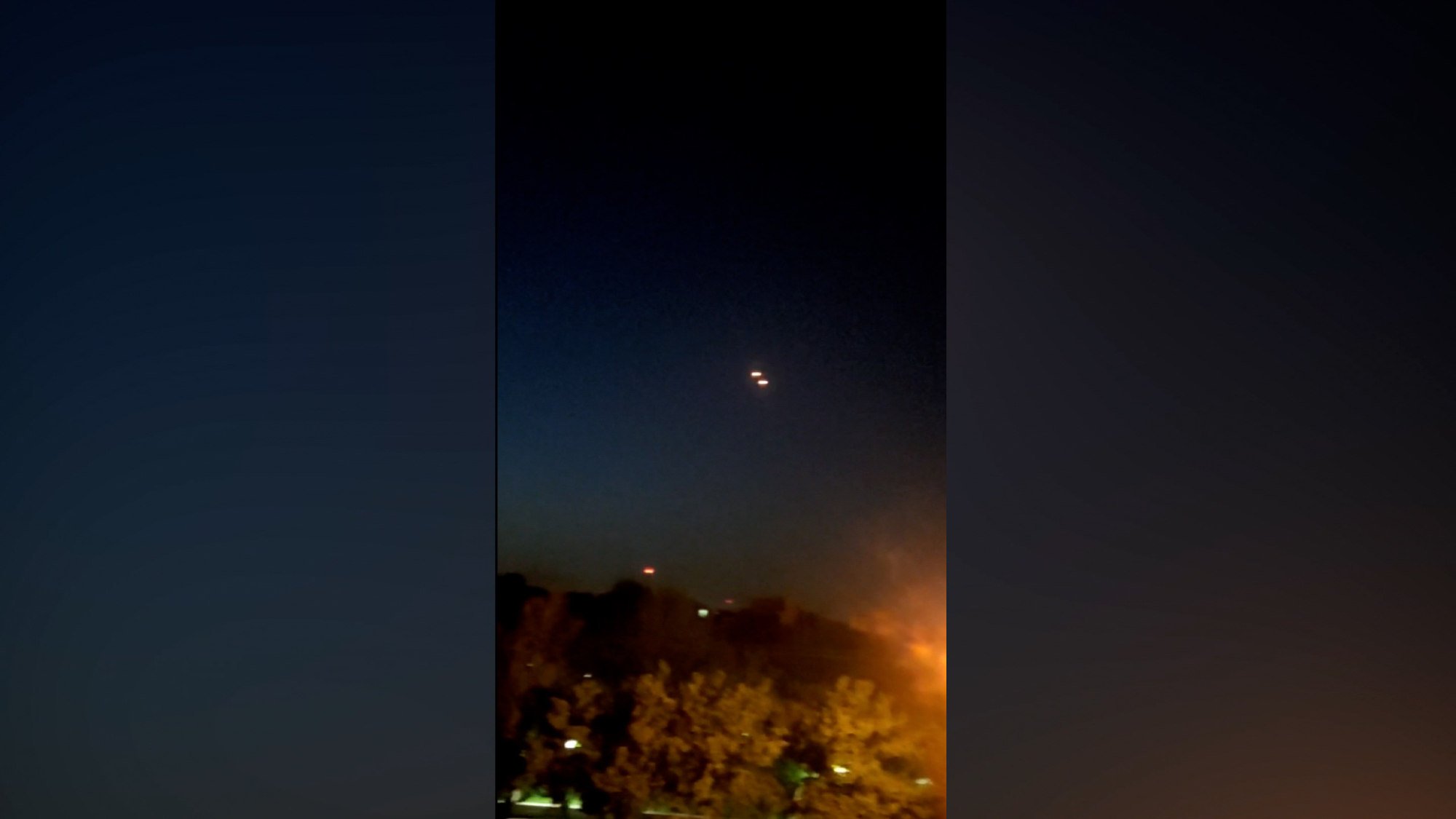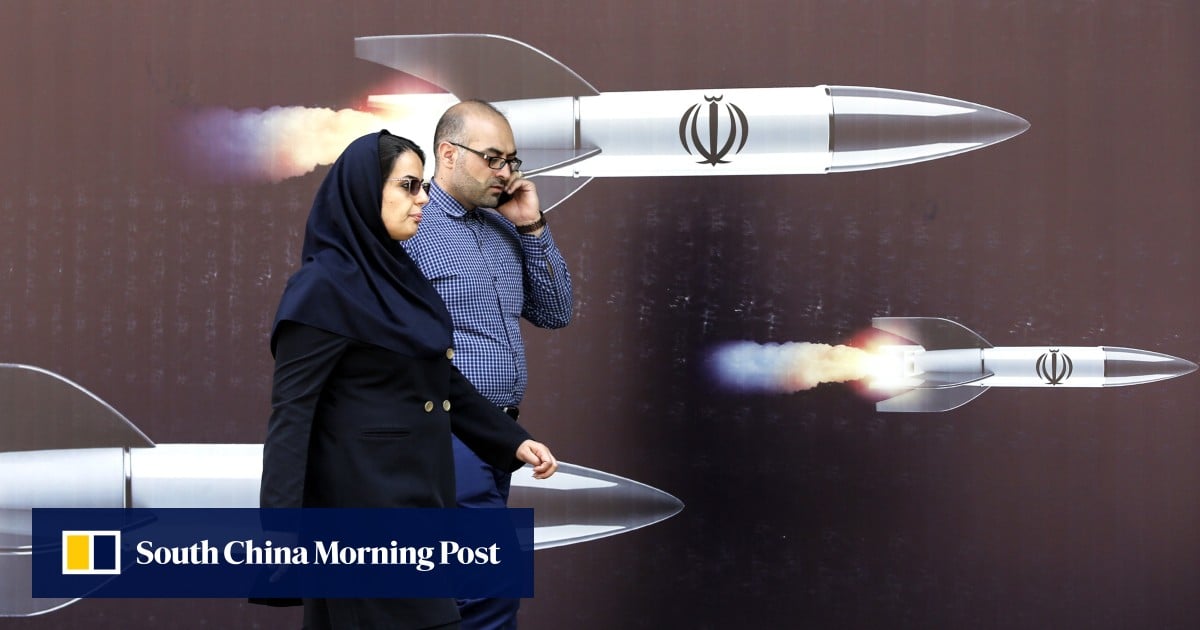The Israeli government, which rarely comments on specific military actions linked to Iran, hasn’t confirmed the strike.
Flights were suspended in Isfahan and the Iranian cities of Tehran and Shiraz, as well as airports across the country’s western borders, but those restrictions were soon eased.
The incident follows days of frantic diplomacy from the US and European nations in which they tried to convince Israeli Prime Minister Benjamin Netanyahu not to respond too aggressively, if at all, to Saturday night’s Iranian attack. Their main concern is to avoid a wider war in a region already roiled by the conflict in Gaza between Israel and Hamas.
Isfahan is home to around 2 million people and several military bases and facilities. It’s believed to have been one of several launch sites for Iran’s attack on Israel on Saturday night.
The New York Times reported a military airbase near Isfahan was struck.

Israel notified the US on Thursday it planned to retaliate in the next 24–48 hours, two American officials said to Bloomberg. They asked not to be identified, discussing private conversations.
Secretary of State Antony Blinken on Friday said the US was committed to Israel’s security, adding, when asked about Israel’s strikes, that Washington has not been involved in any offensive operation.
Blinken, speaking after the G7 gathering in Italy, urged the rapid implementation of Israel’s humanitarian assistance commitments, saying while there had been some important steps taken, more sustained results were needed.
The Group of Seven foreign ministers warned of new sanctions against Iran on Friday for its attack on Israel, and urged both sides to avoid an escalation of the conflict.
Israel had vowed to retaliate against Iran for its barrage of more than 300 drones and missiles, the vast majority of which were destroyed before hitting their targets. While there was limited damage and no one was killed, Israel said it would send a message of weakness to Iran and its other enemies if it didn’t respond.
Iran said it was a justified reaction to a strike on its embassy compound in Syria on April 1, which killed several Iranian officers and was blamed on Israel.

The US, Europe and Arab states urged Netanyahu to act with restraint. The foreign ministers of the UK and Germany both travelled to Israel on Wednesday to see him.
Netanyahu faced a dilemma this week. While many of his far-right coalition members insisted on a firm response, the Israeli public was split on whether the country should react at all. Many, according to a poll, said it wasn’t worth provoking Iran and straining Israel’s ties with the US.
Israel is more than six months into the war in Gaza and still intent on attacking the city of Rafah, where it says several thousand Hamas fighters are lodged. Many in the country want the government to focus on finishing the conflict against the Iran-backed militant group that launched a deadly invasion on October 7.
Ball in Iran’s Court
If attributed to Israel, the nature and scope of the strike on Friday – including any casualties – could determine whether the tit-for-tat responses between the two sides escalate or start to get scaled back.
“The ball is in Iran’s court now,” said Ziad Daoud, chief emerging-market economist for Bloomberg Economics.
“The most likely scenario is avoiding escalation through another direct attack on Israel.”
Many analysts had said targeting Iran’s nuclear facilities would be the riskiest and most aggressive option open to Israel, with strikes on non-nuclear military facilities and cyberattacks among the less escalatory choices.
Early indications are that this was a “symbolic attack” that won’t force Iran to respond aggressively, retired Israeli General Israel Ziv told the nation’s Channel 12.
Israel’s hawkish national security minister, Itamar Ben Gvir, suggested he wasn’t happy with his country’s apparent response.
“Weak,” he said in a one-word post on X in Hebrew.
What are Israel’s options for striking back at Iran?
What are Israel’s options for striking back at Iran?
Ben Gvir isn’t part of Netanyahu’s Likud party and doesn’t sit in the five-man war cabinet that takes final decisions on military actions. But he’s key to the survival of Netanyahu’s coalition, and said after Iran’s attack that Israel had to hit back hard.
Iranian media portrayed a sense of calm in Isfahan and asserted that everything was proceeding as normal. The country’s Supreme National Security Council decided against convening for an emergency meeting, according to state TV.
Iran was bracing for a reprisal by Israel all week.
Tehran has routinely accused Israel of attacks and sabotage activities targeting its nuclear and military sites in the past, including in Isfahan, home to some key nuclear enrichment and missile facilities. Iran says its nuclear programme is for peaceful purposes, but the West accuses it of seeking to develop atomic weapons.
On Thursday, Iran said it may reconsider its nuclear policies if Israel attacked its atomic sites.
Iranian Foreign Minister Hossein Amirabdollahian also warned Israel against lashing out after the weekend assault.
“In case the Israeli regime embarks on adventurism again and takes action against the interests of Iran, the next response from us will be immediate and at a maximum level,” he said to CNN.
Additional reporting by Reuters, Associated Press

